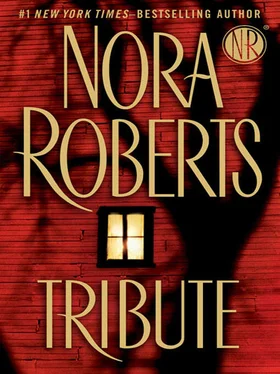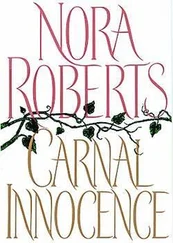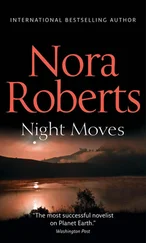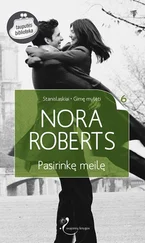Nora Roberts - Tribute
Здесь есть возможность читать онлайн «Nora Roberts - Tribute» весь текст электронной книги совершенно бесплатно (целиком полную версию без сокращений). В некоторых случаях можно слушать аудио, скачать через торрент в формате fb2 и присутствует краткое содержание. Жанр: Триллер, на английском языке. Описание произведения, (предисловие) а так же отзывы посетителей доступны на портале библиотеки ЛибКат.
- Название:Tribute
- Автор:
- Жанр:
- Год:неизвестен
- ISBN:нет данных
- Рейтинг книги:4 / 5. Голосов: 1
-
Избранное:Добавить в избранное
- Отзывы:
-
Ваша оценка:
Tribute: краткое содержание, описание и аннотация
Предлагаем к чтению аннотацию, описание, краткое содержание или предисловие (зависит от того, что написал сам автор книги «Tribute»). Если вы не нашли необходимую информацию о книге — напишите в комментариях, мы постараемся отыскать её.
Virginia 's Shenandoah Valley is a long way from Hollywood. And that's exactly how Cilla McGowan wants it. Cilla, a former child star who has found more satisfying work as a restorer of old houses, has come to her grandmother's farmhouse, tools at her side, to rescue it from ruin. Sadly, no one was able to save her grandmother, the legendary Janet Hardy. An actress with a tumultuous life, Janet entertained glamorous guests and engaged in decadent affairs – but died of an overdose in this very house more than thirty years earlier. To this day, Janet haunts Cilla's dreams. And during waking hours, Cilla is haunted by her melodramatic, five-times-married mother, who carried on in the public spotlight and never gave her a chance at a normal childhood. By coming east, rolling up her sleeves, and rehabbing this wreck of a house, Cilla intends to find some kind of normalcy for herself.
Plunging into the project with gusto, she's almost too busy to notice her neighbor, graphic novelist Ford Sawyer – but his lanky form, green eyes, and easy, unflappable humor (not to mention his delightfully ugly dog, Spock) are hard to ignore. Determined not to perpetuate the family tradition of ill-fated romances, Cilla steels herself against Ford's quirky charm, but she can't help indulging in a little fantasy.
But love and a peaceful life may not be in the cards for Cilla. In the attic, she has found a cache of unsigned letters suggesting that Janet Hardy was pregnant when she died – and that the father was a local married man. Cilla can't help but wonder what really happened all those years ago. The mystery only deepens with a series of intimidating acts and a frightening, violent assault. And if Cilla and Ford are unable to sort out who is targeting her and why, she may – like her world-famous grandmother – be cut down in the prime of her life.
Plunging into the project with gusto, she's almost too busy to notice her neighbor, graphic novelist Ford Sawyer – but his lanky form, green eyes, and easy, unflappable humor (not to mention his delightfully ugly dog, Spock) are hard to ignore. Determined not to perpetuate the family tradition of ill-fated romances, Cilla steels herself against Ford's quirky charm, but she can't help indulging in a little fantasy.
But love and a peaceful life may not be in the cards for Cilla. In the attic, she has found a cache of unsigned letters suggesting that Janet Hardy was pregnant when she died – and that the father was a local married man. Cilla can't help but wonder what really happened all those years ago. The mystery only deepens with a series of intimidating acts and a frightening, violent assault. And if Cilla and Ford are unable to sort out who is targeting her and why, she may – like her world-famous grandmother – be cut down in the prime of her life.












